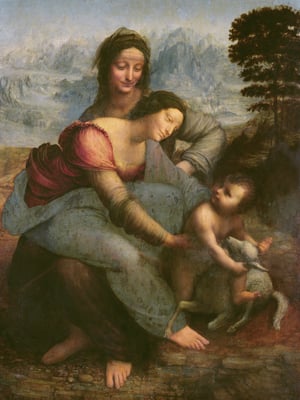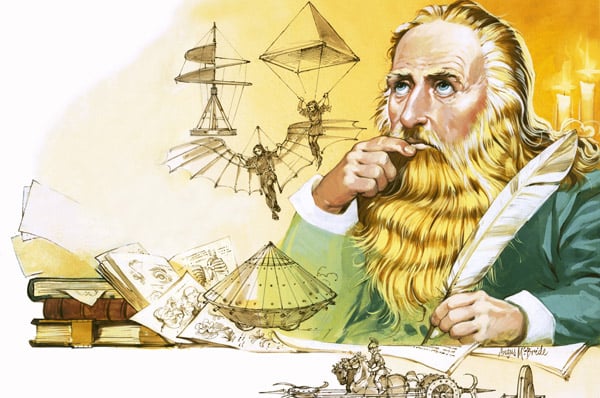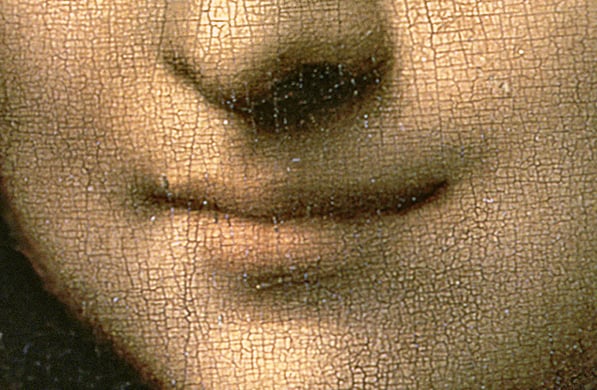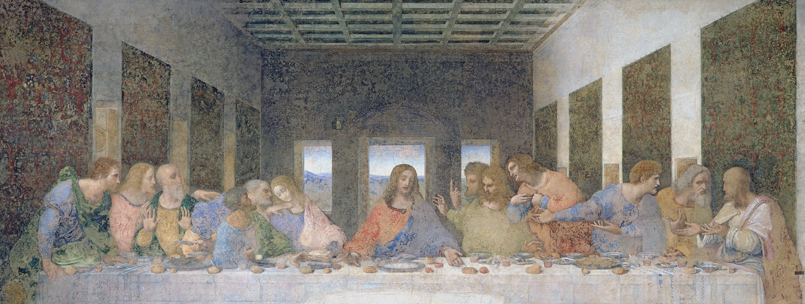
Da Vinci: Fact or Fiction?
We’ve assembled our Top Ten Favourite Fascinating Facts about the man behind the Mona Lisa’s smile. Can you identify which of these ‘facts’ might be fiction…
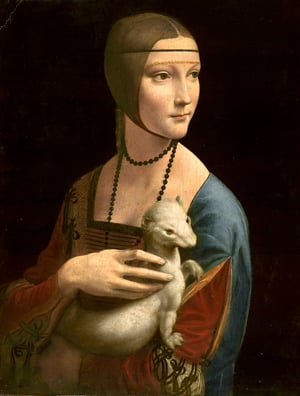
The Lady with the Ermine (Cecilia Gallerani), Leonardo da Vinci © Czartoryski Museum, Cracow, Poland / Bridgeman Images
1.) As well as being an accomplished artist, Leonardo can also be described as an architect, engineer, mathematician and philosopher. Leonardo left fewer than 30 paintings, several of which are incomplete, along with hundreds of drawings, sketches, and thousands of pages of notes. His reputation isn’t just based on his paintings. We have no idea what percentage the remains of his output represents from his total body of work.
2.) Leonardo the inventor was as prolific as Leonardo the artist. His inventions and discoveries are said to include the following: machine guns, an armoured tank, cluster bombs, a submarine, the first mechanical calculator, solar power, the cannon, a machine gun, gliders, turnspit for roasting meat, a canal system to irrigate fields, scissors, hydraulic pumps and the parachute. Some of these we have to take with a pinch of salt…Leonardo didn’t invent the telescope, gears, ratchets, pulley systems, or screws; these already existed.
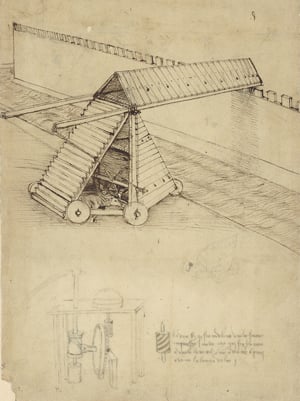
Siege machine with horizontal bridge (for crossing walls of the enemy fortress) from Atlantic Codex (Codex Atlanticus) by Leonardo da Vinci / Veneranda Biblioteca Ambrosiana / Bridgeman Images
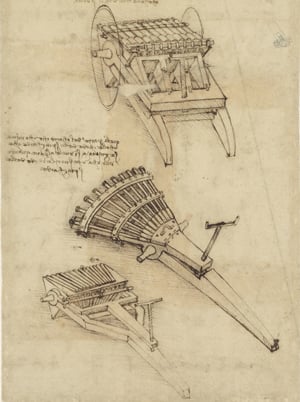
Cart and weapons from Atlantic Codex (Codex Atlanticus) by Leonardo da Vinci / Veneranda Biblioteca Ambrosiana / Bridgeman Images
3.) The illegitimate child of Messer Piero Fruosino di Antonio Da Vinci, a Florentine notary, and Caterina, a peasant, Leonardo was raised by his father in a single-parent family. If he hadn’t been born ‘out of wedlock’, he might not have been apprenticed to the artist Andrea del Verrocchio, more occupations would have been open to him. As it was, being illegitimate, his options were limited.
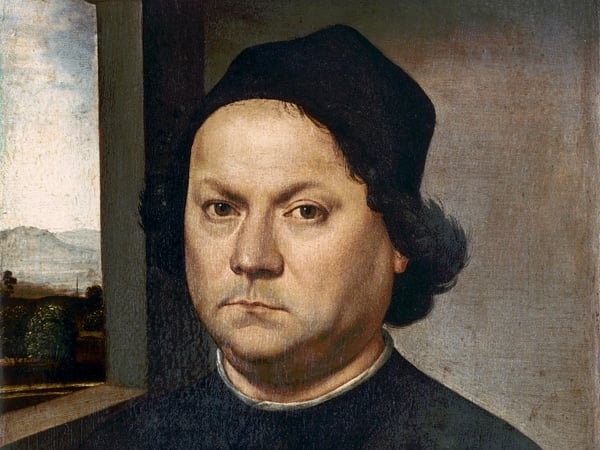
Portrait presumed to be Andrea del Verrocchio, Lorenzo di Credi / Galleria degli Uffizi, Florence, Italy / Alinari / Bridgeman Images
4.) Leonardo mastered the art of cartography. Leonardo created this map of a Tuscan valley for his patron Cesare Borgia to hand him an advantage of having an overlay of the land. Leonardo took special care to record all the rivers to give his patron the greatest strategic tool possible. Leonardo also would have created this map in conjunction with his other project, which was to construct a dam from the sea to Florence.
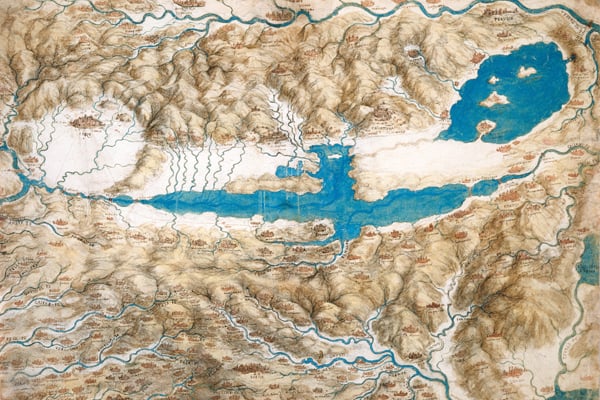
A map of the Valdichiana, c.1503-4, Leonardo da Vinci / Royal Collection Trust © Her Majesty Queen Elizabeth II, 2015 / Bridgeman Images
5.) Leonardo established modern techniques of scientific illustration with highly accurate renderings such as ‘Embryo in the Womb’
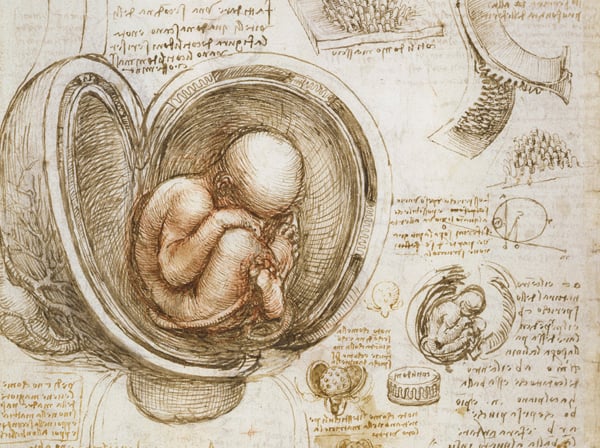
Studies of the foetus in the womb, Leonardo da Vinci / Royal Collection Trust © Her Majesty Queen Elizabeth II, 2015 / Bridgeman Images
6.) Apparently it took Leonardo Da Vinci about ten years to paint Mona Lisa’s lips. He was a left-handed dyslexic and procrastinating perfectionist who left many paintings unfinished and destroyed most of his work.
7.) One of the most unusual hypotheses regarding the subject of the Mona Lisa is that it is a self-portrait of Leonardo as a woman.
8.) A builder of bridges. Leonardo designed a movable bridge for the Duke of Milan.
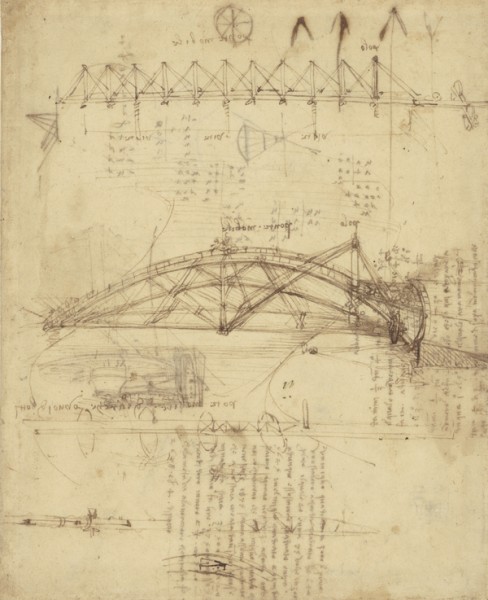
Three kinds of movable bridge: the first resting on poles, the second arch bridge (with figure of horseman at the highest point) and the third is resting on boats or barrels, from Atlantic Codex (Codex Atlanticus) by Leonardo da Vinci, folio 855 recto / Biblioteca Ambrosiana, Milan, Italy / Bridgeman Images
9.) Leonardo apparently liked wearing pink to make his complexion look fresh.
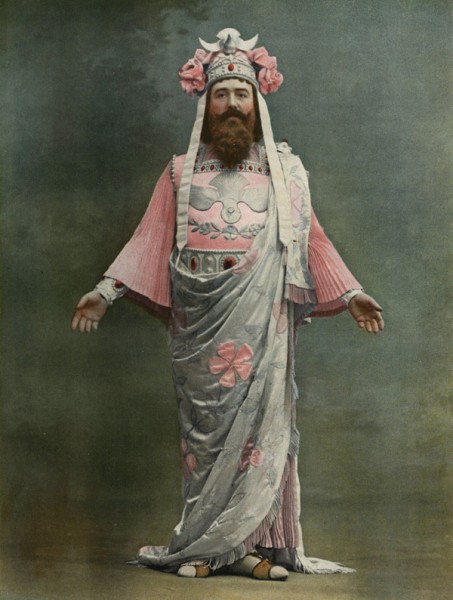
Jean-Francois Delmas as Phur, illustration from ‘Le Theatre’ magazine, 1900s, Du Guy © The Advertising Archives / Bridgeman Images
10.) Despite popular conjecture, Leonardo was not gay and lived with the same woman, Lucia, from the age of 29 until his death in 1519. This was merely a rumour put about by his rival Michelangelo to discredit Leonardo socially
Which of these Fascinating Facts can’t be found online?
If you know which of these facts is false tweet your answer @Bridgemanimages #LeonardoDaVinci
Image licensing: 2793 images for Leonardo da Vinci

